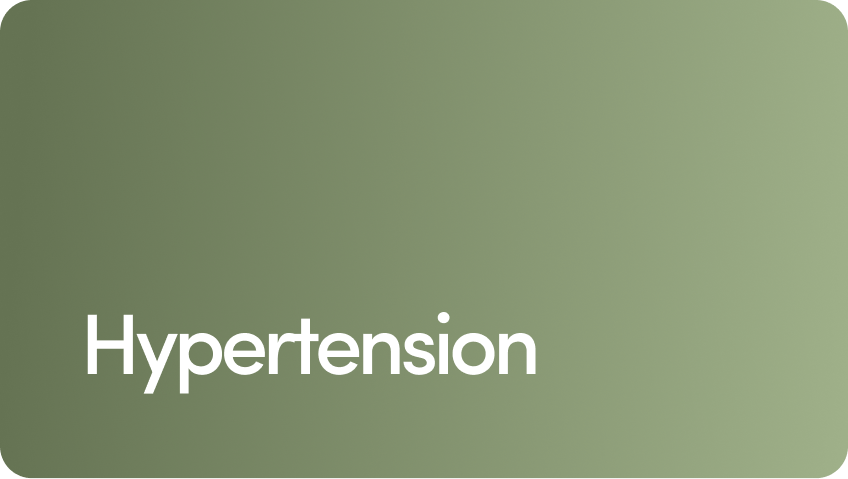Content
Designed by doctors, shaped by you
Why Am I Still Hungry on Semaglutide? Reasons & What to Do

Reviewed by Craig Primack, MD, FACP, FAAP, FOMA
Written by Vanessa Gibbs
Published 09/04/2024
Updated 05/21/2025
Semaglutide — the active ingredient in Ozempic®, Wegovy®, and Rybelsus® — can reduce your appetite and curb food cravings to promote weight loss.
But if you’re still hungry on semaglutide, don’t panic. It can take time for the appetite-reducing effects of semaglutide to kick in, or you may need a higher dose. And you should still feel some hunger on semaglutide — just less of it.
Below, we’ll dive more into why you might still be hungry on semaglutide and what you can do to manage your hunger levels and achieve your weight loss goals.
Content
Your healthcare provider probably walked you through the appetite-reducing effects of Ozempic and Wegovy®, and now you’re wondering, What gives?! Why am I still hungry on Wegovy®? Or Ozempic? Or compounded semaglutide? Or another GLP-1 (glucagon-like peptide-1) receptor agonist drug?
Well, there are quite a few reasons you might be feeling hungry when taking a semaglutide drug. Let’s take a look at the possible explanations and what really happens with the medication’s appetite-reducing effects.
Hunger Won’t Disappear on Semaglutide
First, hunger is a normal bodily sensation, and semaglutide won’t make it stop altogether. The type 2 diabetes and weight loss drug can suppress your appetite so you feel less hunger — but not zero hunger.
You might find you still feel hungry on semaglutide, but not as hungry as you used to. Or maybe you feel hungry, but snacks and meals fill you up a lot quicker than before.
Plus, appetite suppression isn’t the only way semaglutide works as a weight loss drug.
For instance, Wegovy® activates receptors in the gut and brain to reduce appetite and increase satiety (the feeling of fullness). The medication can also slow gastric emptying to help you feel fuller longer.
These changes can help you opt for nutritious food choices, practice portion control to reduce your daily calorie intake, and reach a lower body weight, even though you’re still experiencing hunger.
This effect of Wegovy® was studied in animal models — the impact of Wegovy® in the human brain isn’t fully understood.
Low Doses of Semaglutide May Not Affect Appetite
Just like any medication, semaglutide comes with possible side effects. Based on clinical trials of Ozempic, common side effects include constipation, nausea, and diarrhea.
To limit these gastrointestinal side effects, your healthcare provider will probably get you started on a low dose of semaglutide and gradually increase your dose over time.
For example:
For Ozempic. Your healthcare provider may prescribe you a 0.25-milligram (mg) dose to start. This may increase to 0.5 milligrams after four weeks, 1 milligram after another four weeks, and 2 milligrams after a further four weeks, if needed.
For Wegovy®. Your healthcare provider might prescribe you a 0.25-milligram dose to start. This may increase every four weeks until you reach a dose of 2.4 milligrams.
So, does semaglutide suppress appetite immediately? No, it can take a little time.
You may find that low doses of semaglutide don’t impact your appetite, so you still feel the same amount of hunger as before starting the drug. But this could all start to change as your dose increases.
Everyone Reacts Differently to Medication
What do we have in common with snowflakes? We’re all unique. That’s especially true when it comes to how we react to medication.
It may take different amounts of time or different doses of semaglutide for the appetite-reducing effects to kick in from one person to the next. So, if you’re still in your first month or two of taking the weight loss drug, it might be worth sticking it out.
Other Factors Can Influence Hunger Levels
Semaglutide injections aren’t the only thing that can affect hunger levels. Lifestyle factors, such as sleep, physical activity, food choices, and stress, can all play a role.
So, if you’re thinking, Semaglutide makes me hungry, it may not be semaglutide at all.
Here’s what we mean:
Sleep. When you’re sleep-deprived, your hunger hormones are thrown out of whack. For instance, you may have higher levels of the hormone ghrelin, which is responsible for hunger, and lower levels of the hormone leptin, which is responsible for satiety.
Movement. If you’re on a weight loss journey, you might have started incorporating more movement into your day. Your body may then need more food to fuel this extra physical activity. Don’t worry — this is a good thing. Reach for nutritious, whole foods to give your body the fuel it needs to achieve weight loss results.
Food choices. We’re not here to shame any food group, but some foods fill you up a lot more than others. If you’re eating processed foods without many nutrients, you may find you’re hungry again before your next meal.
Dehydration. Your brain can mistake thirst signals for hunger. So, if you’re not staying on top of your water intake, you might find yourself feeling hungry when, really, your body’s in need of a glass of water (or two).
Stress. We’ve all been there. At the end of a long, stressful day, a bowl of salty popcorn looks much more appealing than a salad. Some folks turn to high-calorie foods or overeating to help deal with emotions like stress, boredom, anxiety, or depression. In these cases, your emotions — and how you typically deal with them — may be driving your eating habits more than semaglutide.
Long story short, making healthy lifestyle choices can help you get the most out of your medication.
Here’s what to do if your appetite is high, despite taking semaglutide.
Hang Tight
You may find that as your body adjusts to semaglutide or when your dose increases, you start noticing a difference in your appetite.
If you’ve just started taking Ozempic or Wegovy®, give the medication some time to kick in, especially if you’re still on a lower dose.
Prioritize Sleep
We know this is easier said than done, but try to get a good night’s sleep each night. This can keep your hunger levels in check, aid weight loss, and help you feel your best.
Aim for at least seven hours of shut-eye a night. Check out our science-backed tips on how to sleep better if that number feels out of reach.
Keep Stress in Check
Another tip that can be tricky. Try to lower your stress levels to manage emotional eating. Keeping stress under control can also help improve your sleep and overall health and wellness.
Stress-management techniques include:
Journaling
Taking a walk in nature
Calling a loved one
We’ve got tips on how to manage stress eating, too, including practicing mindful eating and combining nutrient-dense foods with your favorite treats.
Reach Out to a Healthcare Provider
If you haven’t noticed any changes to your hunger levels while taking semaglutide, don’t be afraid to reach out to a healthcare professional. The medical provider who prescribed your medication should be your first point of contact.
Your provider can work with you to find a semaglutide dose that works for you.
You’ll probably be prescribed healthy diet and lifestyle changes when taking semaglutide to help with weight loss and weight management.
As well as following this advice, here’s what you can do to give your body the nutrients it needs and keep hunger in check:
Eat plenty of protein. Protein can help you feel fuller, regulate blood sugar levels, and help you retain and build muscle. Stock up on lean protein sources like chicken, turkey, fish, eggs, beans, tofu, and tempeh.
Increase your fiber intake. Fiber can also help you feel fuller for longer and decrease your appetite. You can find fiber in fruits, vegetables, lentils, chickpeas, seeds, and complex carbohydrates like brown rice, quinoa, and other whole grains.
Have nutritious snacks on hand. You don’t need to give up snacking to lose weight. If you feel hungry between meals, reach for nutritious snacks like nuts, seeds, yogurt, oatmeal, dried fruit, or hard-boiled eggs. We rounded up more healthy snack ideas to give you some inspo.
Stay hydrated. Don’t let dehydration trick your body into thinking it’s hungry. Research shows that drinking water before meals can reduce your appetite and help you lose weight. Try drinking a glass of water about 30 minutes before meals to see if it makes a difference in your hunger levels.
If you’re still hungry on Ozempic, Wegovy®, or another semaglutide drug, don’t panic.
Here’s the TL;DR:
You’ll still feel some hunger on semaglutide. Semaglutide can suppress your appetite, but it won’t get rid of hunger altogether. And that’s normal! You may still find your hunger is lower than usual, helping kickstart your weight loss journey.
You may need a higher dose to feel less hunger. If you haven’t noticed any changes to your appetite and are currently still hungry on semaglutide, hang in there. You might need more time for your body to adjust or to move up to a higher dose of semaglutide before you feel the difference.
Take steps to manage your hunger. Remember to eat nutritious, whole foods (with plenty of protein), drink lots of water, get enough sleep, and keep stress in check. These steps can ensure nothing else is messing with your hunger levels.
And finally, don’t be afraid to reach out to a healthcare provider. They can help you find the right semaglutide dose. And if the medication really isn’t making a difference to your hunger, they can recommend other weight loss medications and treatment plans that may be a better fit.
10 Sources
- Burls A, et al. (2019). Drinking extra water or other non‐caloric beverages for promoting weight loss or preventing weight gain.https://www.ncbi.nlm.nih.gov/pmc/articles/PMC6426280/
- Dakanalis A, et al. (2023). The association of emotional eating with overweight/obesity, depression, anxiety/stress, and dietary patterns: a review of the current clinical evidence. https://www.ncbi.nlm.nih.gov/pmc/articles/PMC10005347/
- Dashti HS, et al. (2015). Short sleep duration and dietary intake: epidemiologic evidence, mechanisms, and health implications. https://www.ncbi.nlm.nih.gov/pmc/articles/PMC4642416/
- Ioniță-Mîndrican C, et al. (2022). Therapeutic benefits and dietary restrictions of fiber intake: a state of the art review. https://www.ncbi.nlm.nih.gov/pmc/articles/PMC9268622/
- Moon J, et al. (2020). Clinical evidence and mechanisms of high-protein diet-induced weight loss. https://www.ncbi.nlm.nih.gov/pmc/articles/PMC7539343/
- NovoMedlink. (n.d.). About Wegovy®. https://www.novomedlink.com/obesity/products/treatments/wegovy/about-wegovy/how-wegovy-works.html
- Ozempic (semaglutide) injection, for subcutaneous use. (2023). https://www.accessdata.fda.gov/drugsatfda_docs/label/2023/209637s020s021lbl.pdf
- Perry D, et al. (2022). Water for weight loss. https://www.ncbi.nlm.nih.gov/pmc/articles/PMC9842148/
- U.S. Food and Drug Administration (FDA). (2021). FDA approves new drug treatment for chronic weight management, first since 2014. https://www.fda.gov/news-events/press-announcements/fda-approves-new-drug-treatment-chronic-weight-management-first-2014
- Wegovy® (semaglutide) injection, for subcutaneous use. (2023). https://www.accessdata.fda.gov/drugsatfda_docs/label/2023/215256s007lbl.pdf
Editorial Standards
Hims & Hers has strict sourcing guidelines to ensure our content is accurate and current. We rely on peer-reviewed studies, academic research institutions, and medical associations. We strive to use primary sources and refrain from using tertiary references. See a mistake? Let us know at [email protected]!
This article is for informational purposes only and does not constitute medical advice. The information contained herein is not a substitute for and should never be relied upon for professional medical advice. Always talk to your doctor about the risks and benefits of any treatment. Learn more about our editorial standards here.
Related Conditions
 Obesity
Obesity
 Diabetes
Diabetes
 Fatty Liver Disease
Fatty Liver Disease
 Cardiovascular Disease
Cardiovascular Disease
 Hypertension
Hypertension
 Insulin Resistance
Insulin Resistance